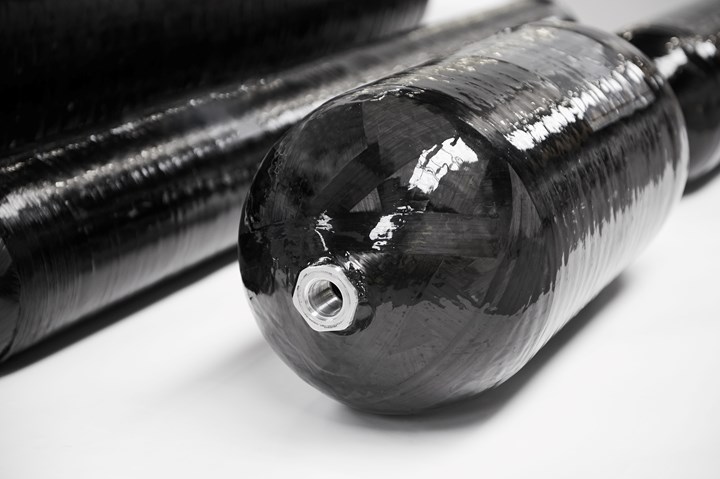Plastic Omnium announces construction of Compiègne hydrogen storage vessel facility
Government-funded future factory will produce 80,000 Type IV storage vessels/year, adds to large contacts for design, production of 700-bar hydrogen vessels.
Public funding has been announced for the entire French hydrogen industry, including €74 million to develop Plastic Omnium’s (Levallois-Perret, France) hydrogen activities. With this government funding, Laurent Favre, Plastic Omnium’s CEO, says Plastic Omnium is constructing what is reported to be the largest hydrogen vessel facility in Europe. Located in Compiègne, France, the future factory will produce 80,000 Type IV storage vessels a year, with the first ones to be produced as of 2025, and, in time, will create around 200 jobs.
In addition to this development, Plastic Omnium says it will continue its hydrogen research and development (R&D) activities at its α-Alphatech R&D Center based in Compiègne.
Favre also announces two major contracts with Stellantis (Hoofddorp, Netherlands) and HYVIA (Ile de France). Both contracts cover the design and production, at its future Compiègne plant, of 700-bar high-pressure hydrogen vessels modules for commercial vehicles.
“The support of the French government allows us to accelerate the ramp-up of our industrial production of hydrogen vessels in France. The signing of two new contracts with Stellantis and HYVIA illustrates our customers’ confidence in our technological expertise in hydrogen storage,” Favre says. “These announcements are a major step in our ambition to become the world leader in hydrogen mobility by 2030 and the preferred partner of the players in this sector, serving the transformation of our industry towards low-carbon mobility.”
Funding is part of the PIIEC (Important Project of Common European Interest) framework and supports projects considered essential for Europe’s competitiveness. HYVIA was also selected within this framework.
Related Content
-
Infinite Composites: Type V tanks for space, hydrogen, automotive and more
After a decade of proving its linerless, weight-saving composite tanks with NASA and more than 30 aerospace companies, this CryoSphere pioneer is scaling for growth in commercial space and sustainable transportation on Earth.
-
Composites end markets: Batteries and fuel cells (2024)
As the number of battery and fuel cell electric vehicles (EVs) grows, so do the opportunities for composites in battery enclosures and components for fuel cells.
-
JEC World 2023 highlights: Recyclable resins, renewable energy solutions, award-winning automotive
CW technical editor Hannah Mason recaps some of the technology on display at JEC World, including natural, bio-based or recyclable materials solutions, innovative automotive and renewable energy components and more.
















